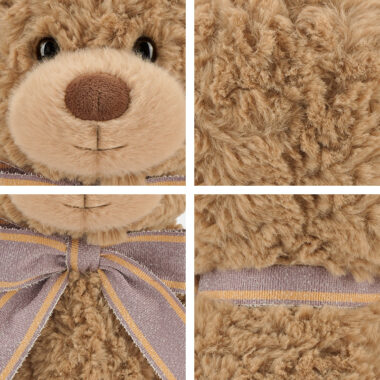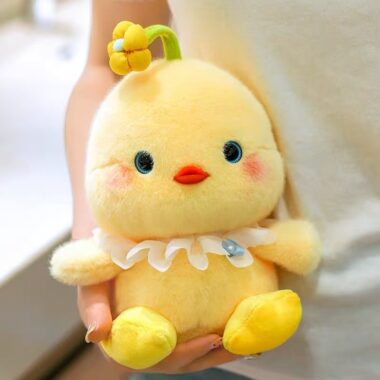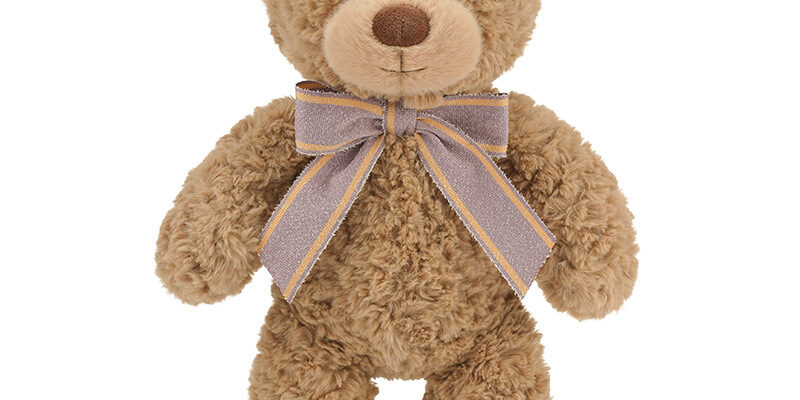Eco-friendly soft toys are gaining popularity as more people look for sustainable, non-toxic, and environmentally friendly products. Here are some of the best options for eco-friendly soft toys for kids in 2025:
1. Organic Cotton Soft Toys
- Material: 100% organic cotton, often with natural dyes.
- Benefits: Free from harmful chemicals like pesticides and synthetic dyes, making them safe for babies and toddlers. Organic cotton also has a smaller carbon footprint compared to conventionally grown cotton.
- Examples:
- Cuddle + Kind: Handmade from organic cotton, these dolls help provide meals to children in need.
- Under the Nile: Known for their soft, organic cotton animals, perfect for younger children.
2. Recycled Polyester Soft Toys
- Material: Made from recycled plastic bottles (RPET).
- Benefits: These toys help reduce plastic waste and are a great way to give new life to materials that would otherwise end up in landfills. They are durable and washable.
- Examples:
- Plush & Play: Soft toys made from 100% recycled materials, offering a wide variety of plush animals.
- Green Toys: Known for their eco-friendly plastic toys, many of their soft toys also use recycled materials.
3. Wooden and Natural Fiber Toys
- Material: Wood, bamboo, wool, jute, and other natural fibers.
- Benefits: Often handcrafted, these toys are biodegradable and free from synthetic materials. They tend to be more durable and long-lasting.
- Examples:
- Lanka Kade: Handmade wooden toys, often painted with non-toxic paints.
- Woolly Eco: Soft toys made from sustainable wool and natural materials.
4. Biodegradable Soft Toys
- Material: Biodegradable materials like plant-based fibers, natural latex, or cornstarch.
- Benefits: These toys decompose naturally, reducing the environmental impact when they’re no longer used.
- Examples:
- Tegu: Some of their wooden toys are created with biodegradable finishes.
- Bioserie: Eco-friendly toys made from biodegradable plastic alternatives.
5. Fair Trade Soft Toys
- Material: Made from a range of natural, sustainable, and fair trade-certified materials.
- Benefits: In addition to being environmentally friendly, fair trade toys support ethical labor practices.
- Examples:
- The Little Market: Offers a variety of soft toys made by artisans in developing countries using sustainable practices.
- Ethical Superstore: Carries a selection of eco-friendly, fair trade toys.
6. Upcycled Materials Soft Toys
- Material: Repurposed materials such as old clothes or fabric scraps.
- Benefits: Help reduce textile waste, which is one of the largest contributors to environmental pollution.
- Examples:
- Rebirth Garments: Uses upcycled fabric to create soft toys.
- ScrapBuster: Offers a line of plush toys made from upcycled fabrics and materials.
7. Sustainable Packaging
- While not directly related to the toy itself, choosing brands that focus on sustainable packaging can make a big difference. Many eco-friendly toy companies now use recycled paper or cardboard packaging instead of plastic.
Why Choose Eco-Friendly Soft Toys?
- Toxin-Free: Many traditional soft toys are made with harmful chemicals, which can be toxic for young children. Eco-friendly toys are often free of chemicals like phthalates, BPA, and PVC.
- Support Sustainability: Choosing these toys means supporting sustainable materials and ethical manufacturing processes.
- Durability: Often built to last longer, meaning you’ll likely buy fewer replacements.
- Eco-conscious Habits: Teaching kids about sustainability from an early age sets the foundation for environmentally responsible behavior.
If you’re looking for specific brands or want to explore more, I can dive deeper into recommendations based on your preferences!









